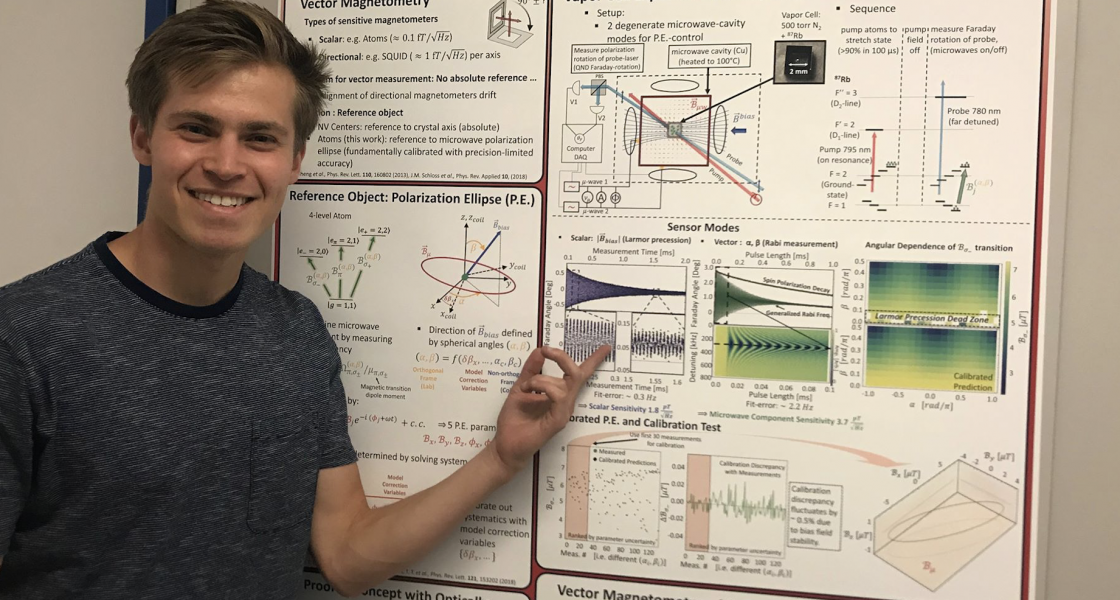Regal Group graduate student Christopher Kiehl won a poster prize for their work at the WE-Heraeus workshop on quantum sensing and metrology in Ban Honnef, Germany this August. The conference focused on advances in quantum sensing technology, such as atomic sensors, ion traps and superconducting quantum interference devices (SQUIDS).
Kiehl and his collaborators in Svenja Knappe's mechanical engineering group at University of Colorado Boulder are working on a sensitive, self-calibrated vector magnetometer with a hot atomic vapor cell. Kiehl describes it this way:
The idea is that in the magnetometry field there are very sensitive technologies to measure the scalar/length of a magnetic field. To not only measure the length but also the direction of a magnetic field is a much harder problem where systematic errors can accrue that are difficult to calibrate. In other words, accurate vector magnetometry is challenging. In our vector magnetometry technique we can determine and calibrate systematic effects that would normally lead to an inaccurate measurement. In addition, the technique is self-calibrating such that we can tell if we have accounted for all of the systematics affecting our sensor to within the sensitivity of our measurements.
The prize was one of three awarded at the conference. Each of the researchers received 100 Euros as part of the prize. This research is funded in part by the National Science Foundation Physics Frontier Center grant.
Congratulations to Christopher on winning!
Written by Rebecca Jacobson



 The Physics Frontiers Centers (PFC) program supports university-based centers and institutes where the collective efforts of a larger group of individuals can enable transformational advances in the most promising research areas. The program is designed to foster major breakthroughs at the intellectual frontiers of physics by providing needed resources such as combinations of talents, skills, disciplines, and/or specialized infrastructure, not usually available to individual investigators or small groups, in an environment in which the collective efforts of the larger group can be shown to be seminal to promoting significant progress in the science and the education of students. PFCs also include creative, substantive activities aimed at enhancing education, broadening participation of traditionally underrepresented groups, and outreach to the scientific community and general public.
The Physics Frontiers Centers (PFC) program supports university-based centers and institutes where the collective efforts of a larger group of individuals can enable transformational advances in the most promising research areas. The program is designed to foster major breakthroughs at the intellectual frontiers of physics by providing needed resources such as combinations of talents, skills, disciplines, and/or specialized infrastructure, not usually available to individual investigators or small groups, in an environment in which the collective efforts of the larger group can be shown to be seminal to promoting significant progress in the science and the education of students. PFCs also include creative, substantive activities aimed at enhancing education, broadening participation of traditionally underrepresented groups, and outreach to the scientific community and general public.